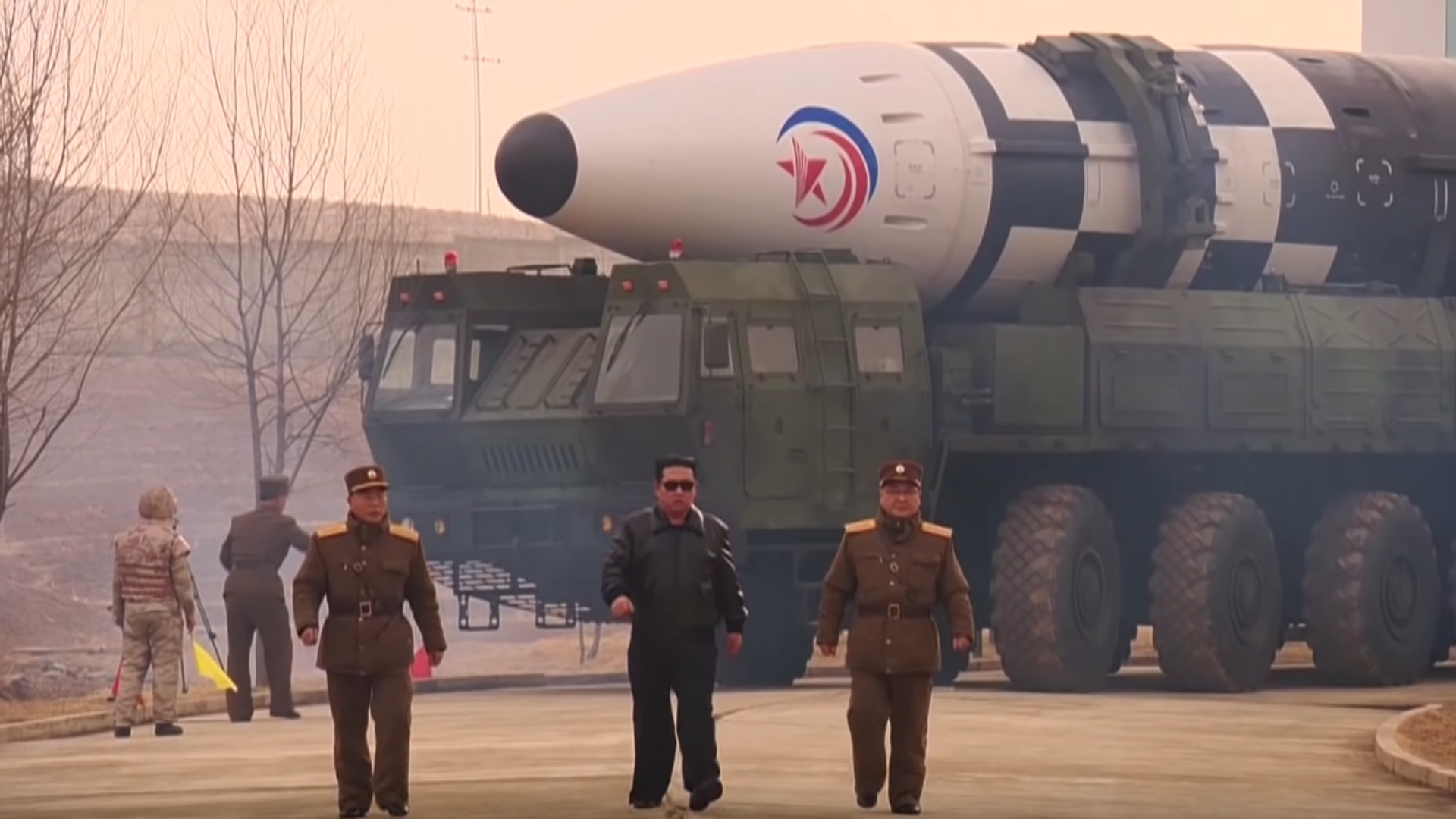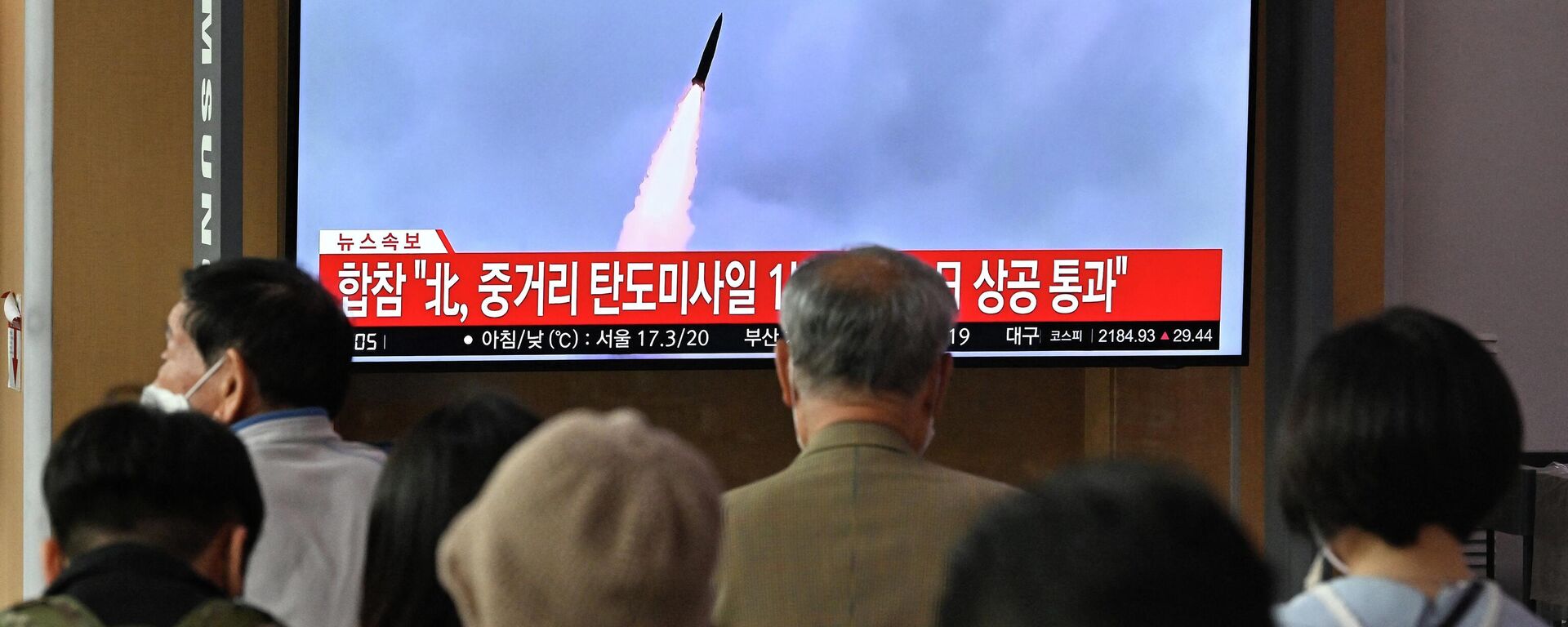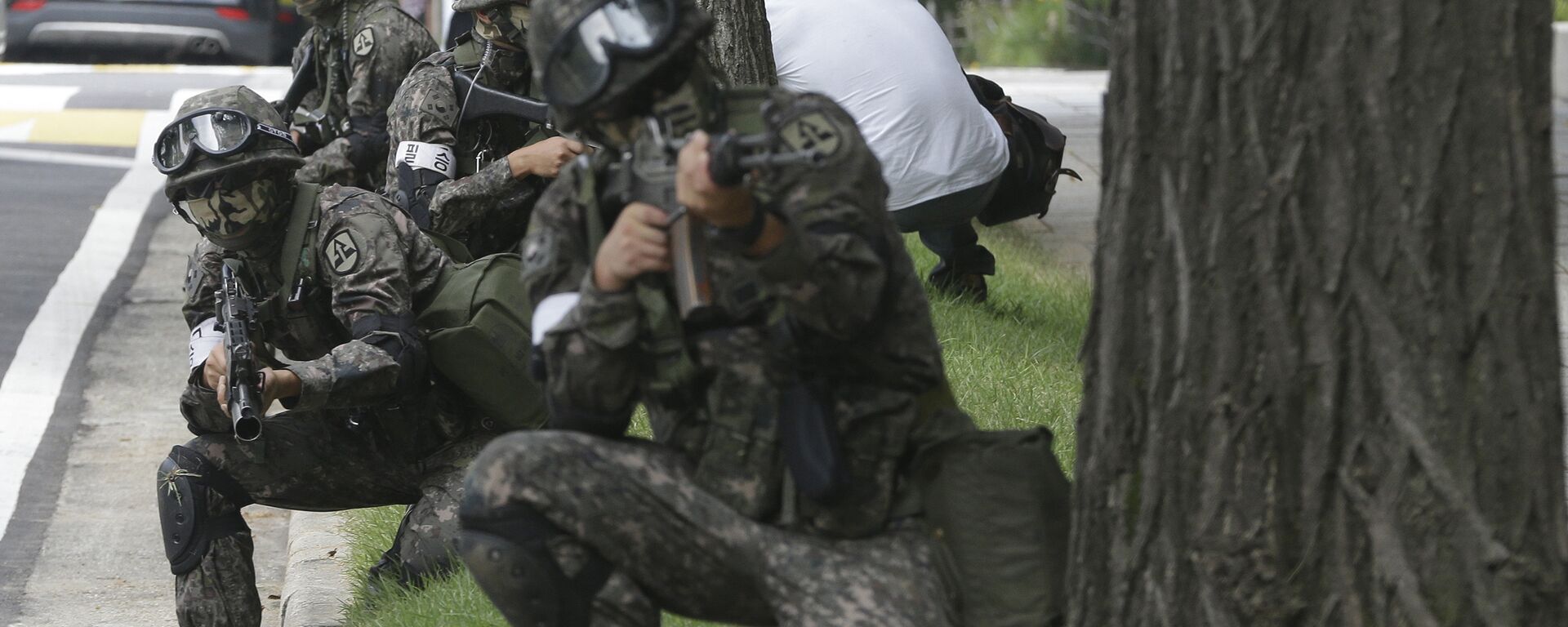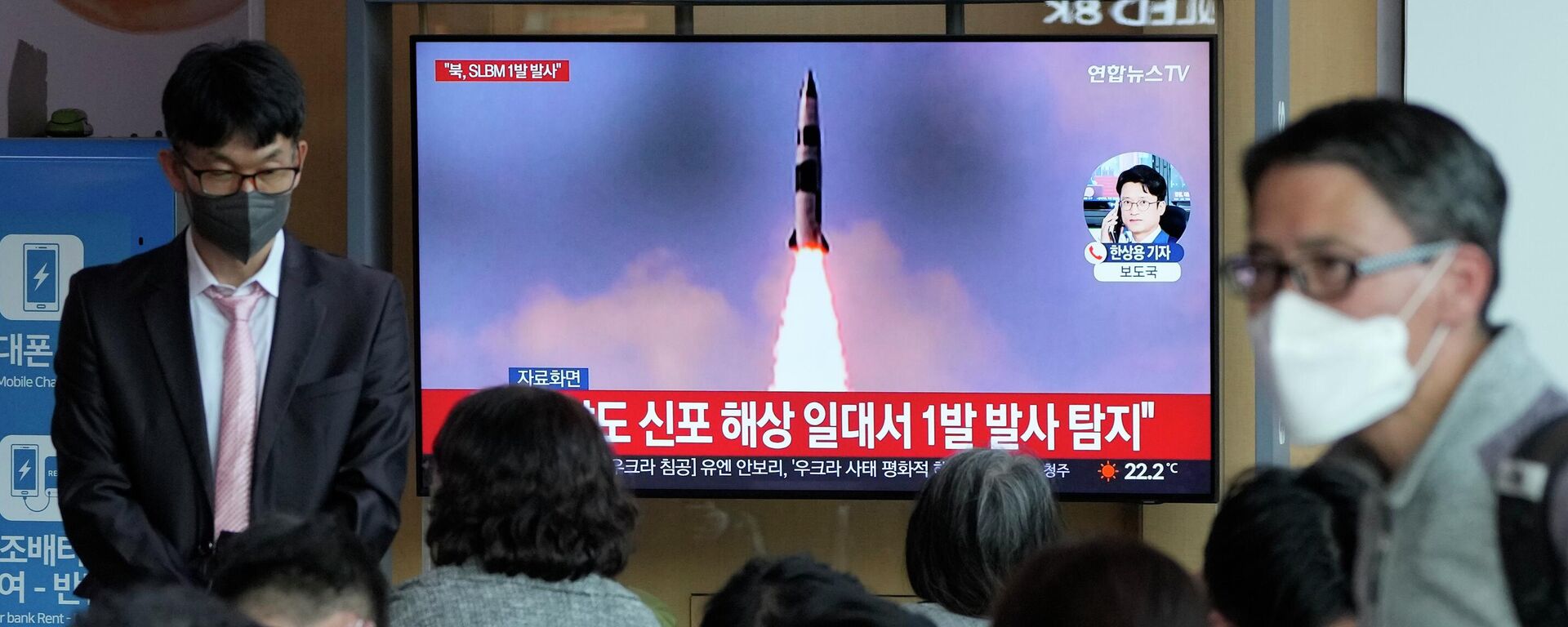Seventh Nuclear Test? How US and Its Asian Allies are Driving North Korea Into a Corner
10:55 GMT 27.10.2022 (Updated: 13:36 GMT 18.09.2023)

© Photo : KCNA
Subscribe
The US, Japan, and South Korea vowed an "unparalleled" response to a potential seventh nuclear test by the Democratic People's Republic of Korea (DPRK). However, the countries' officials did not clarify precisely what measures they would take.
"This deterrence through threat of punishment by Washington and its allies is unlikely to succeed," said Dr. Zhang Baohui, director of the Center for Asian Pacific Studies at Lingnan University in Hong Kong. "Pyongyang follows its own strategic logic when deciding whether to pursue new tests. A rise in tensions on the peninsula will only heighten North Korea’s insecurity, motivating it to continue to pursue the nuclear option."
The US and its Asian allies reportedly fear that Pyongyang could be planning a nuclear bomb test for the first time since 2017. However, they have yet to provide details backing their concerns. Meanwhile, the US and South Korea have stepped up joint military drills in the region over the past several months.
Earlier, President Donald Trump's White House tried to facilitate dialogue between Seoul and Pyongyang. These efforts were halted by President Joe Biden, who announced in May 2021 that he would not give DPRK leader Kim Jong-un "recognition" as the "legitimate" head of the state unless the latter denuclearized the country. Washington's shift under Biden did not go unnoticed by the DPRK, and was followed by eight missile tests by Pyongyang in 2021.
The number of missile tests carried out by North Korea rose steeply in 2022, as Yoon Suk-yeol won the presidency in South Korea in March and declared Communist Pyongyang the "main enemy" of Seoul. Furthermore, the new South Korean president has openly flirted with the idea of a preemptive strike against his country's northern neighbor.
In August 2022, Washington and Seoul kicked off their largest military exercises since 2018, with Yoon vowing to further boost "deterrence" against the DPRK. Earlier this month, Seoul also launched the 12-day Hoguk exercise with the participation of the Army, Navy, Air Force, Marine Corps, and the US military. The Hoguk drills will last until October 28.
Almost simultaneously, South Korea joined a US-led multinational exercise on cyber operations called Cyber Flag for the first time. According to the South Korean Defense Ministry, 18 personnel from the South Korean military are participating in the exercise, held from October 24 to 28 and which involves 25 countries.
Beijing has repeatedly warned Washington and Seoul against provoking Pyongyang and igniting instability on the Korean Peninsula. "All parties concerned should focus on the overall situation of peace and stability on the peninsula and prevent the situation from escalating," Geng Shuang, China's deputy permanent representative to the United Nations, told the international body on October 5. Geng highlighted that the recent bolstering of the US military alliance in the Asia-Pacific region has only increased the risk of military confrontation.
"Historical experience shows that dialogue and consultation are the only correct way to resolve the Korean Peninsula issue," the Chinese official stressed.
Diplomatic Logjam Between North and South
However, if Pyongyang decides to conduct a seventh nuclear test, there is little if anything that the US and its Asian allies can do to prevent it, according to Zhang.
"Frankly, I don’t see what the three can do with North Korea’s seventh nuclear test," the Chinese scholar said. "It is already under very systematic sanctions by the United Nations and it is hard to imagine that the US, South Korea, and Japan could pursue additional meaningful sanctions against Pyongyang. Current sanctions were adopted due to China and Russia’s support in 2017. Now, the strategic landscape has completely changed and it is now impossible to expect China and Russia supporting new sanction measures."
The US and its Asian allies are likely to take a series of measures in response to the DPRK's potential nuclear test, according to Michael Madden, nonresident fellow at the Stimson Center, leading contributing analyst to 38 North, and director and founder of NK Leadership Watch.
"The 'unparalleled response' line comes from remarks made by the Republic of Korea [South Korea] 1st Vice Foreign Minister following interactions with officials from the US and Japan," said Madden. "The primary response will be an increase in military exercises in and around the Korean Peninsula."

26 October 2022, 10:52 GMT
For its part, the US might also move certain military assets into the area as a warning to the DPRK, according to the analyst.
"There has already been a loose plan to continue some exercises and drills through the middle of November, albeit on a small scale," he said. "In the event of the seventh nuclear test, the scope and equipment of those exercises will probably be expanded. From the ROK we might also see them scrap some of the agreements they made with the DPRK during the Moon Administration. The Yoon Administration has called attention to the North violating the 2018 inter-Korea military agreement so a seventh nuclear test raises the probability that both Koreas will discard that agreement."
For its part, the North could launch or attempt to launch an intercontinental ballistic missile (ICBM) and additionally carry out intermediate-range ballistic missile (IRBM) drills, according to Madden.
"The North could very well declare itself on a wartime footing which they had done in 2013. If there are additional military exercises from the US, ROK and/or Japan, it is highly probable the DPRK will respond with their own drills and exercises. Of course, all of this activity would be an escalation," the US analyst projected.
According to Madden, the unfolding situation "is a bit of a diplomatic logjam" between the South and North, as Pyongyang has already announced that it will not negotiate its nuclear weapons program or inventory, while the US, South Korea, and Japan urge it to denuclearize.
However, the analyst did not rule out that South and North Korea could have a meeting or interaction to reduce tensions if military engagement between the two escalates at the border. Another de-escalation scenario could involve another country, like China or Russia, brokering something between the two sides.
"In the current context of the re-rise of tension, a diplomatic option no longer exists," argued Zhang. "The only viable alternative, as some have suggested in the US, is to accept North Korea’s nuclear status. That would remove a source of conflict between the US and North Korea simply by recognizing and accepting the status quo. However, Washington should not be expected to pursue this option."



